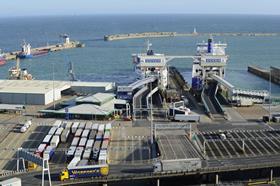
The government has been criticised for a lack of progress in negotiating new customs arrangements and preparing Britain’s supply chains for Brexit.
John Glen, an economist at the Chartered Institute of Procurement and Supply, said: “Promises of more [border] staff will do little to help businesses attempting to secure long-term contracts, today. Our research shows that, in October last year, eight per cent of UK businesses had already lost contracts as a result of Brexit.”
He warned that even the slightest customs delay could have a significant impact on businesses’ profitability, food prices and food quality.
“Businesses cannot put their suppliers and customers on hold while they wait for the Brexit negotiations to make progress,” he said, adding that it was “crucial that trade negotiations progress quickly in order to give businesses the time and clarity they need to prepare.”
Glen’s comments relate to the Home Office’s response, on 26 January, to a report by the Home Affairs Committee on customs operations during the Brexit transition period, due to begin March 2019.
A key bone of contention is how many extra customs and border staff will be needed after Brexit. HMRC said it would need up to 5,000 additional employees by March 2019, and the Home Office announced that an extra 300 border staff would be put in place by March 2019 – a four per cent increase.
However, the committee said it found the planned increases “completely unconvincing” and at risk of jeopardising Britain’s border security.
The Home Office responded that it would “continue to monitor workflows and ensure sufficient resources are in place at the border to meet demands as the UK leaves the EU”.
The committee also called on the government to agree transitional arrangements with the EU that require no practical change to customs operations either in the UK or the EU, especially on the Irish border.
If this is not possible, it urged the government to inform businesses and traders what the changes will be made to customs arrangements so that businesses and the public sector can plan for them.
In the event of 'no deal' with the EU on customs arrangements, the committee warned that a “major contingency plan” would be needed to set out the volume and nature of checks to be carried out at border points. These should include costed plans for extra staff and additional infrastructure, the committee recommended.
The government responded that it was working to “understand the operational impacts of potential changes” to customs and how long they would take to implement at more than 275 ports and airports in the UK.
But the committee warned that given the lead times for changes to staffing, technology and infrastructure, the Border Force, HMRC and other agencies would quickly need clarity on any changes that need to be made.
Another recommendation was for any new arrangements at UK ports to be replicated at the Channel ports in France and Belgium.
The government said it was planning and preparing the UK side of the border but could not control what the EU does. Despite this, it said it was looking at ways to alleviate congestion at UK ports, such as that seen in 2015.



